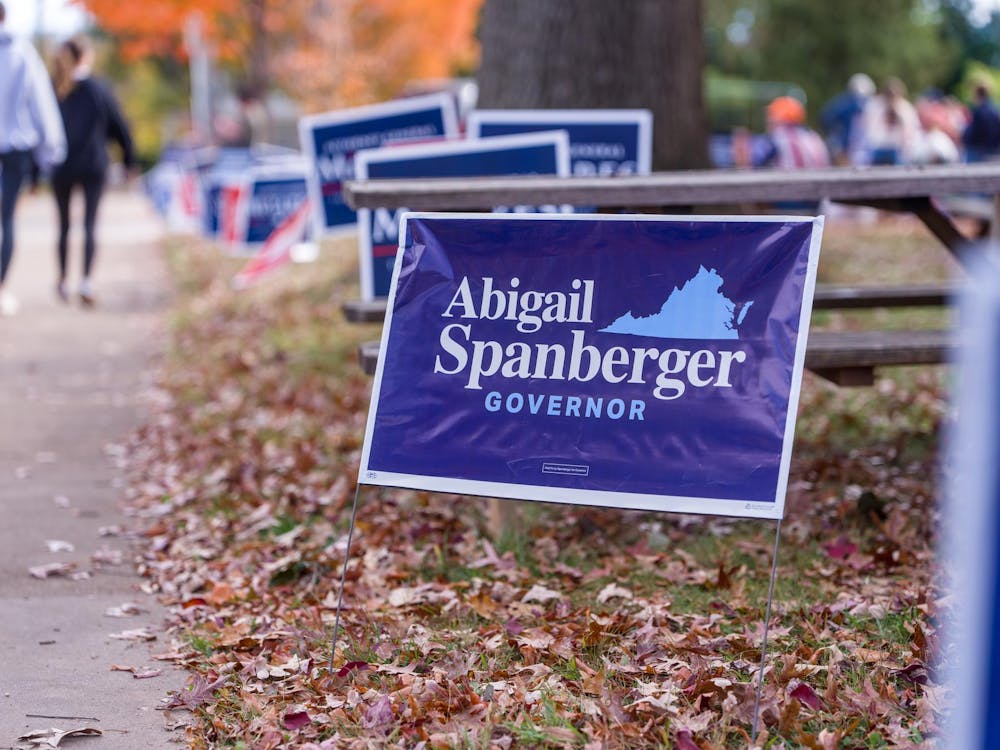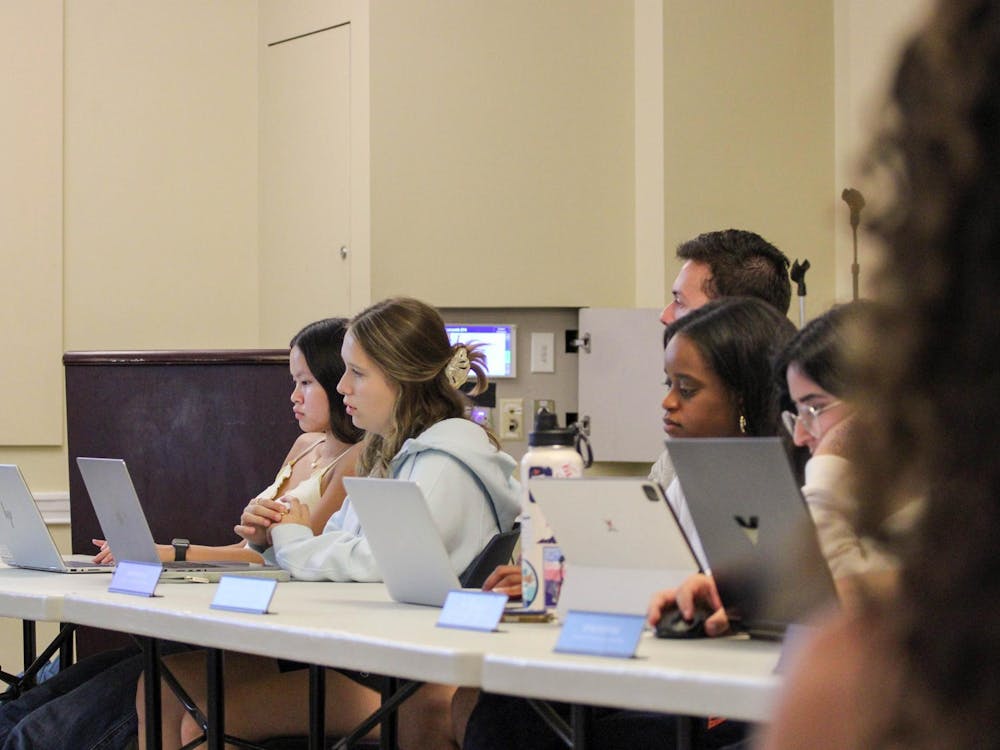William W. Harmon, vice president for student affairs, took the stand yesterday in suspended student Richard W. Smith's $1.25 million lawsuit trial as both sides continued to debate the credibility of the University Judiciary Committee.
Smith, who has been embroiled in a legal battle with the University since he filed his lawsuit in July 1999, received a two-year suspension from University President John T. Casteen III for his part in a Nov. 21, 1997 assault of then-first year student Alexander "Sandy" Kory, after originally being expelled by the student-run UJC.
Smith's lawyers argued that the UJC is inadequately trained and undersupervised by the administration, emphasizing that Harmon does not have enough of a supervisory role. But when Harmon took the stand, he rebuffed the claim. He said the UJC could reject recommendations made by himself, Casteen or the Board of Visitors, but he said he has a "close-knit relationship" with the UJC chairperson.
Earlier in the day, Smith's lawyers read a deposition from Matthew O'Malley, a former UJC Architecture School representative. The lawyers tried to connect O'Malley's deposition with their argument that the UJC had defied Harmon by proceeding with the trial after Harmon had made a recommendation for postponement. O'Malley was questioned if it was his "understanding that the University Judiciary Committee should follow the Vice President of Student Affairs'" recommendation. He responded, "Yes."
When Harmon was cross-examined by General Counsel for the University Richard Kast, he emphasized he only could recommend postponement to the UJC. "I indicated I did not have the authority to postpone," he said. But Smith's lawyers then referred to an earlier deposition in which Harmon said he did not recall whether he told Smith he could defer the trial.
A deposition from Mark Kringlen, a member of the UJC panel that convicted and expelled Smith in the original November 1998 trial, strengthened the plaintiff's case that the UJC members were not properly trained. Kringlen's deposition stated that he had participated in only one student-run training session and when questioned, he could not remember what was covered. He also conceded that as part of the panel that convicted Smith in 1998, he helped to decide that the trial would proceed in the defendant's absence, even though no panel members had been trained on how to deal with such a matter. The University's defense team did not have a chance to respond yesterday. The trial will pick up today with Kringlen's cross-examination.
First thing yesterday morning, Kast highlighted two instances to suggest that Smith intentionally evaded his UJC prosecution. He first pointed to an explanatory press release distributed to the University community in December 1998 in which Smith said he did not attend his UJC trial because it "was to have been postponed." Kast said the wording indicated Smith knew his trial had not been postponed. Kast also said Smith did not sign the final version of the investigation report for his trial in an attempt to stall the proceedings. Smith maintained that he had signed a previous version but did not contact the investigator to sign the final version because he thought the trial was postponed.
Also at the forefront of yesterday's testimonies was a questionable Feb. 9, 1998 letter from the UJC that Smith contends he never received. This letter contradicted a January 1998 letter saying Smith would not face a UJC trial until all criminal and civil proceedings were concluded. The February letter said a UJC trail would commence following completion of criminal proceedings only.
Harmon testified that following his Nov. 20, 1998 meeting with Smith and his father, he sent an e-mail to Amanda Morrow, then-chairwoman of the UJC, recommending a postponement of the trial due to possible civil proceedings. He said he based the decision on the Jan. 1998 letter, but if he had known of the Feb. 1998 letter, his decision may have changed.






